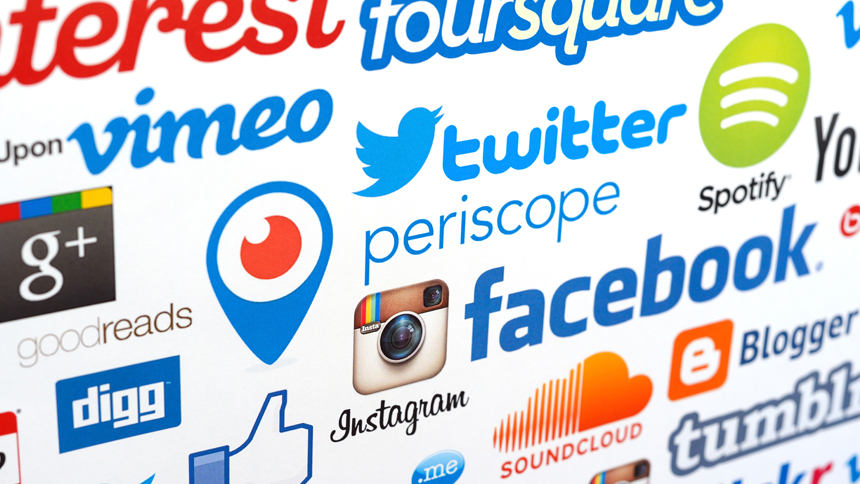To be successful (or even gainfully employed) in this era of industry uncertainty, it seems like you have to go above and beyond the general requirements. Read on to understand how easy it is to implement these little life hacks and keep your career in check.
1. Be good to your body
Even though movies make it seem like members of the media pay rent by writing (whiskey in hand) in dark corners of empty bars, it’s not sustainable.
Also on Mediabistro


Taylor Lorenz, director of emerging platforms at The Hill, pays special attention to what she puts in her body. “It’s very hard to eat healthy while working in media,” she says. “Your schedule is often long and unpredictable–you’re either sitting in front of your desk or on the run for a story, [but] by prioritizing what goes into your body you can operate on a higher level by remaining healthy and more resilient.”
Lorenz never eats processed foods, limits her alcohol intake to less than two drinks a month, and drinks almost three gallons of water a day. “Lots of people think I’m a wacko health freak, but keeping my body healthy allows me to operate at maximum capacity and my diet has been critical to my professional success,” she says.
2. Stop obsessing over email
Have you ever caught yourself sitting there debating signing off Best or Sincerely, then backspace entirely, revert to your old-standby of Thanks! and get too stressed out to send the email? You’re not alone.
“I will deliberate over one message for half an hour ensuring that I’ve expressed myself clearly and kindly to a client or collaborator,” says Abby Carney, a freelance journalist and editor. But especially in the freelance game, time is money. Read over the message to make sure it’s free of errors, then fire it off.
3. Disconnect during downtime
We’re not just talking WiFi here. Try heading outside, away from any outlets.
Heather Whaling, founder and president of Geben Communication, avoids checking email, social media or taking calls when she’s at home with her young son. This may sound impossible as the head of a PR agency with offices across the midwest, but Whaling insists it’s actually added-value at the office.
“By incorporating these periods of disconnection into my schedule, I’m sharper and more creative when it’s time to focus on work,” she says.
4. Call your grandma
“I know the thought of a phone call paralyzes a lot of fellow millennials,” Lorenz acknowledges. “But there’s no replacement for a good heart to heart over a long phone call.”
You may even find it easier to dial 10 numbers instead of composing a tweet in exactly 140 characters proclaiming how much you miss your sister. Catching up with friends and family keeps things in perspective when life seems out of your control.
5. Know what’s happening in the world
Whether she’s in Chicago or Columbus, Whaling starts every morning with the New York Times. “[It] helps me get a frame of reference for the day, monitor trends that could be relevant to our clients and stay informed about current events,” she says.
Plus, reading today’s headlines not only helps you as a conversationalist at cocktail parties, but you’re also supporting your industry peers at the end of the day.
6. Pay attention to trends
Knowing what’s in the news will keep your consumption well-rounded, but you should also seek out specifics.
“I spend a lot of time keeping up on tech trends, researching forward-thinking brand campaigns and understanding how technology is changing communications and business,” says Whaling. “With that foundation, I’m able to help clients infuse innovation and creativity into their communication and take a fresh approach to best practices.”
7. Don’t just hashtag #goals, create them
Every day Lorenz looks at her list of long-term goals and her five and 10-year plans. Her weekly to-do’s are the background of her cell phone. And with a resume boasting companies like Time, Inc., Refinery29, Business Insider, and the Daily Mail, it’s safe to say she’s hitting her marks.
“I change my goals constantly,” she says. “But this way I make sure I’m always moving forward. This includes (but is not limited to) six detailed spreadsheets to make sure she’s on track.
8. Stay in school, kids
Learning to cook a meal, cut hair and apply makeup has very little to do with being a journalist, but Lorenz took classes in all three. Since graduating college, she’s been enrolled in at least one (if not two or three) classes outside of work.
“It’s so fun to learn new skills!” she says of her extracurricular studies on copywriting, creative writing, graphic design, advertising and marketing, to name a few. “[It] always broadens your horizons and keeps your mind fresh, even if you never put those skills to use.”
9. Connect with your community
Whaling recently rolled out a program allowing her employees to use up to 30 hours of “work time” to volunteer for for nonprofits they believe in.
“Of course, being involved in the community is the right thing to do from an altruistic perspective, but it’s also good for business,” she says. “By making community involvement a core component of my workflow, it helps me add value to causes I believe in, plus it generates new business opportunities.”
10. Block out your schedule ahead of time
And avoid the inbox timesuck.
“I used to spend so much time in my inbox that I was focusing on whatever happened to be at the top of my inbox, instead of focusing on the things that truly warranted my time and attention,” says Whaling. Now she schedules three or four times per day to check emails for about 20 minutes each time. She quickly assesses each email, responding to those that take “less than two minutes of attention.” If it requires more brain power, she’ll “calendar block” time to take care of it.
11. Go old-school when list-making
Carney is meticulous when it comes to making lists. She keeps two “old-school” (paper) day planners to write in all of her appointments, social engagements, to-do lists and deadlines.
“I was highly neurotic [as a child] and panicked about missing any homework assignments,” she says. “I always wanted to make the best marks. I’m still the same when it comes to my career.”
12. Don’t blow your deadlines
Maybe the list-making does the trick, but word on the street is Carney doesn’t miss a deadline. As both a writer and editor, Carney contributes her success to staying ahead of schedule.
“I never imagined that anyone would blaze through a deadline or wait until the last minute to ask for an extension unless it was an emergency situation,” she says.
13. Realize what’s worth your time
“To be successful in journalism in 2016, I think you sadly can’t get stuck on making every assignment top-notch,” says Carney. With the Internet, inevitable deadlines, and an increase of content creation, sometimes speed is all that matters.
“You have to churn it out day after day, and hopefully if you churn enough, you’ll have more time to work on assignments that really matter to you, and you can write something you’re proud of,” says Carney, who speaks from experience as assistant editor at Time Out New York, which still prints weekly.
14. Give yourself a break
No matter your profession, it’s important to give yourself one night of nothing to recharge.
“Every week I spend four nights working on my freelance jobs, one night in class or teaching myself a new skill, one night either going to a talk, meetup, or event or socializing with friends,” Lorenz explains. The last night she treasures as her night off to cook, listen to music on her record player, or walk around the city.
“It can be tempting to skip my ‘night off’ and meet friends for dinner or to go out,” she says. But she protects it for her sanity’s sake, which isn’t a bad idea for us all to consider.









